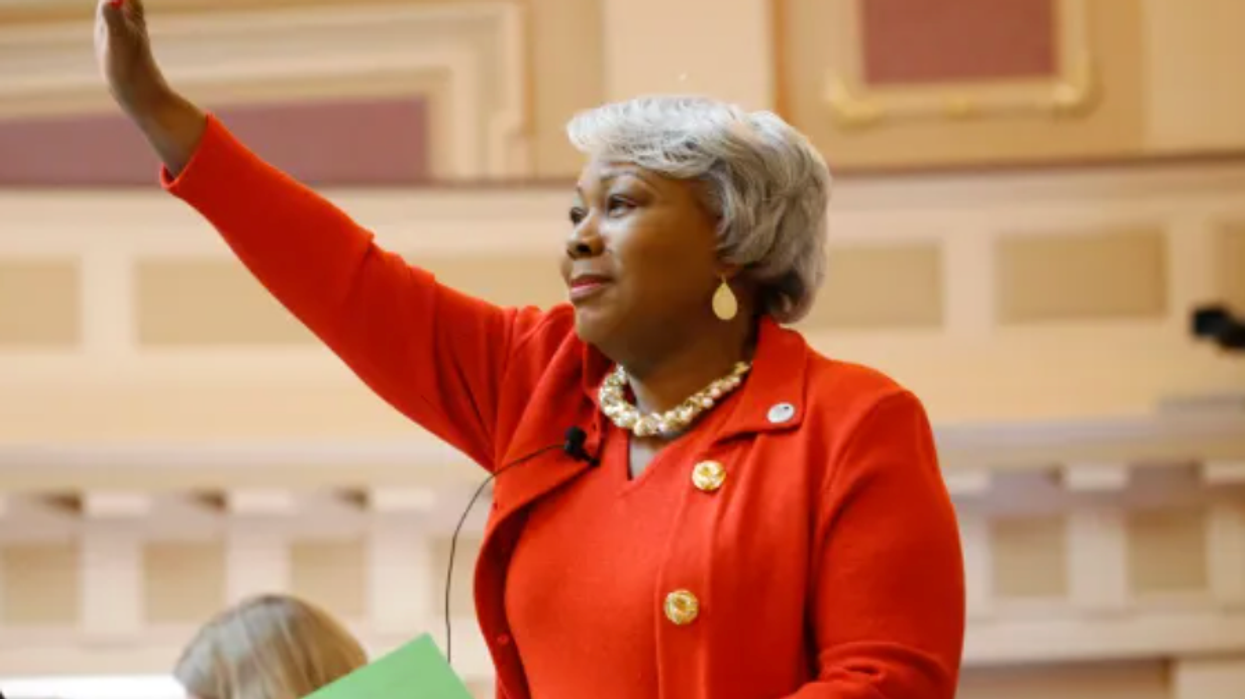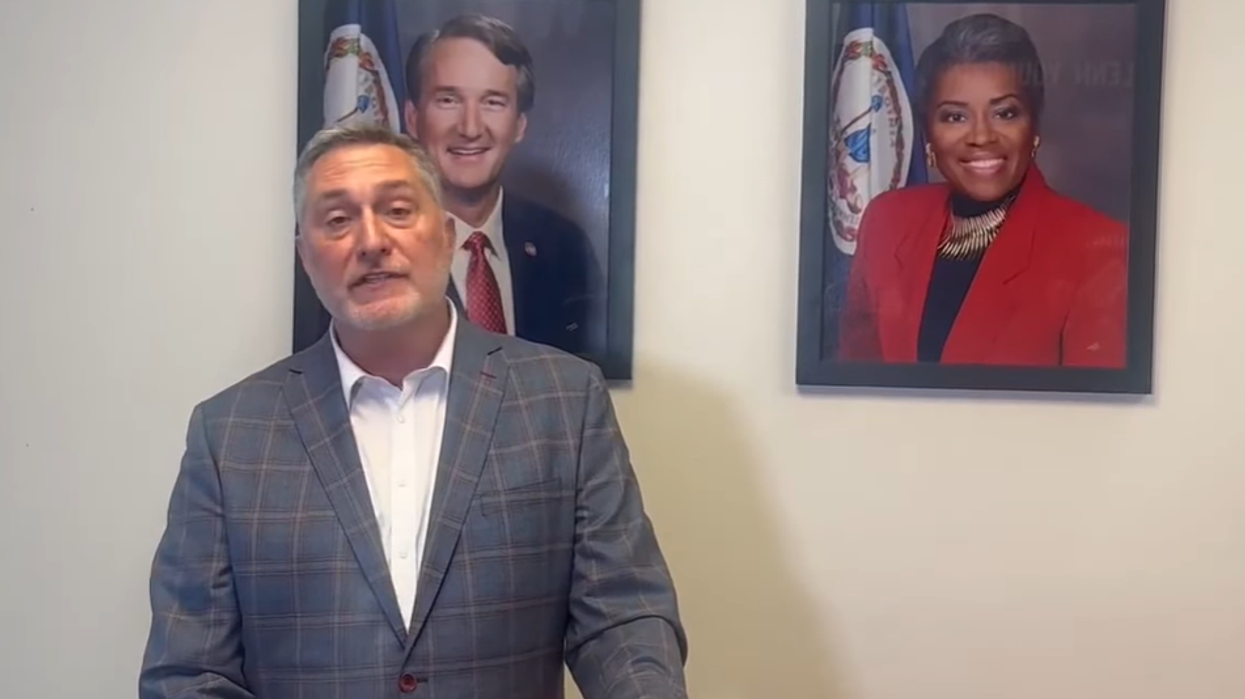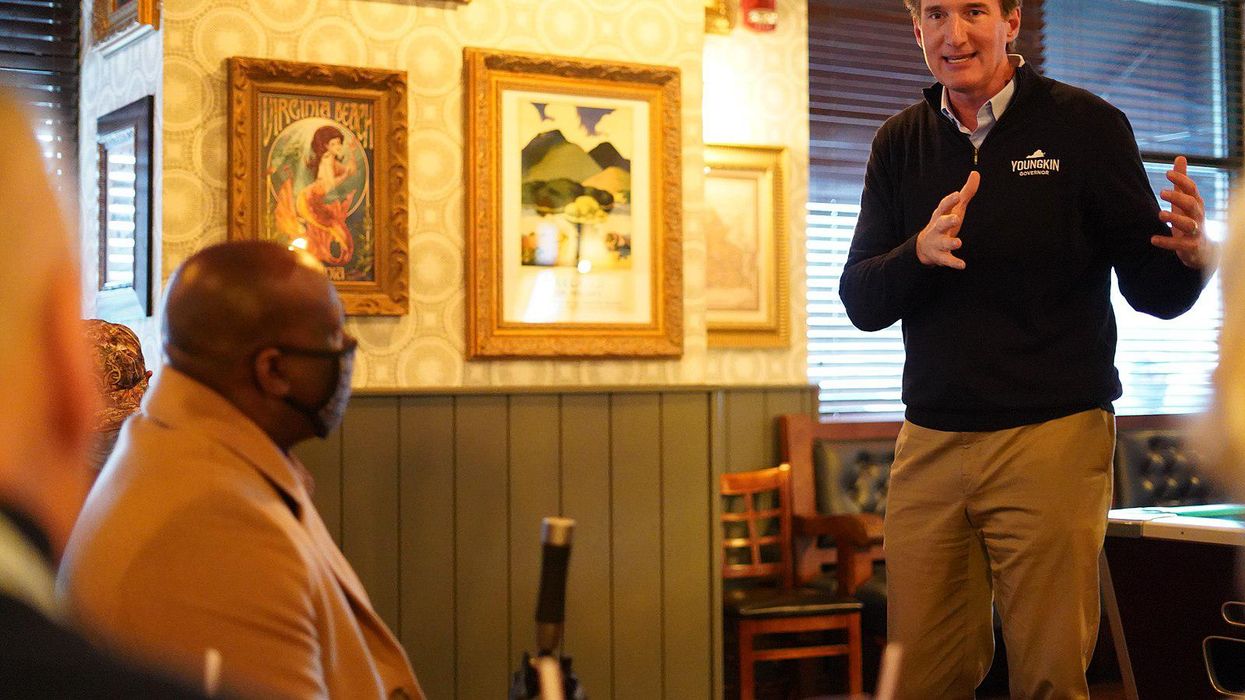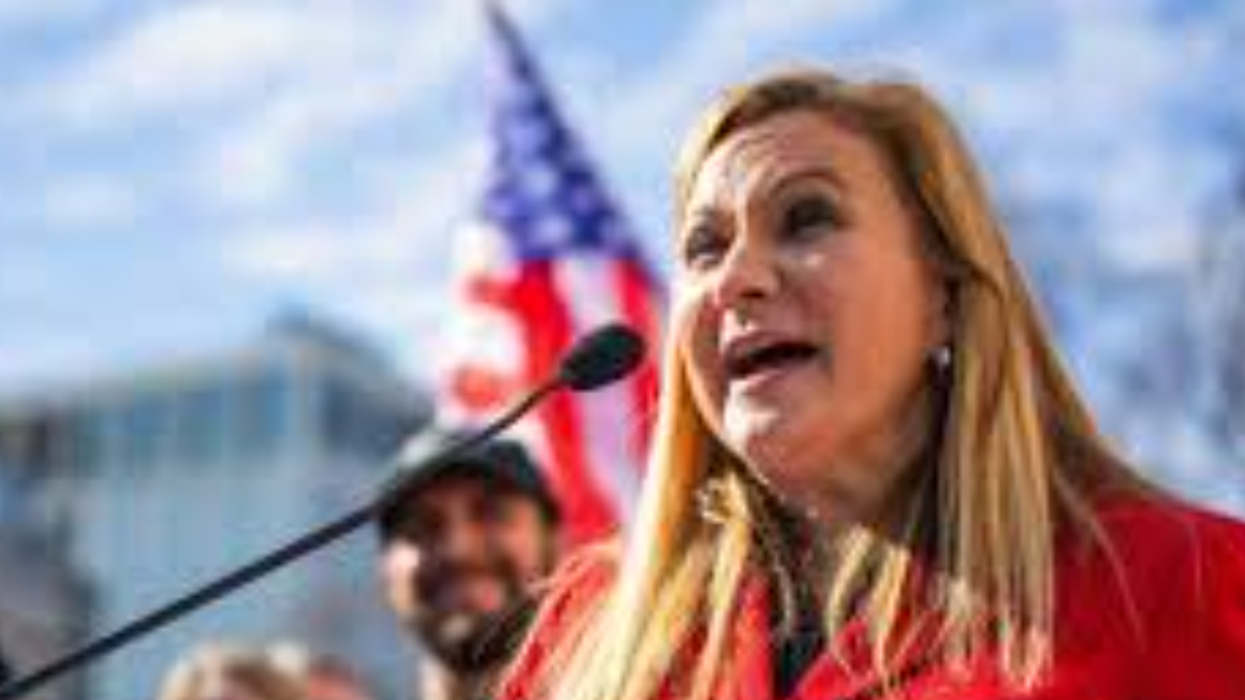Virginia Democrats Push Back On GOP Gerrymanders (And Republicans Are Whining)
Virginia Democrats are giving President Donald Trump and his minions a taste of their own medicine in their redistricting war—and the GOP is pissed.
All five members of Virginia's congressional delegation held a whiny news conference Monday, railing against Democrats’ plan to suspend the state's independent redistricting commission and redraw its U.S. House districts—a move to counter the GOP's gerrymandering efforts.
Yet Virginia Republicans are only speaking out now that Democrats are fighting fire with fire, a move that imperils as many as four of their reelection campaigns.
"Yesterday I stood proudly with my fellow U.S. House Republicans from Virginia, and with members of the Virginia General Assembly in the State Capitol. We ALL agree that what the democrats in Richmond are trying to do is WRONG," GOP Rep. Jen Kiggans (R-VA), who is already facing a difficult reelection, wrote on X. "We will not sit idle as they undermine the constitution of our great Commonwealth. Gerrymandering is wrong and Virginia deserves better."
Virginia Democrats are planning to use the same game plan as California, putting up a ballot measure for permission to suspend the state’s redistricting commission and nix as many as five Republican seats.
"This is about overturning the election results of 2020, pure and simple," GOP Rep. Rob Wittman (R-VA), who is also already facing a difficult reelection, said during the news conference. "They want to deny the voter’s desires to have a bipartisan redistricting commission."
It's rich for Wittman, of all people, to claim that Democrats are trying to overturn election results, as he was one of the 147 congressional Republicans who voted to overturn the actual 2020 results to block Joe Biden's victory.
Rep. Morgan Griffith (R-VA) also spoke during the news conference, admitting that he helped gerrymander Virginia in favor of Republicans back in 2010 when they held eight of the state's 11 congressional seats despite Democrats winning at the presidential level.
"I was a part of partisan redistricting. But the voters of Virginia spoke in 2020 that they didn't like that happening," he said. "They didn't want it, whether it be Republicans or Democrats in the back room. They wanted no more of a partisan redistricting process."
Apparently, Griffith believes in gerrymandering for me but not for thee.
Even Virginia's outgoing GOP Gov. Glenn Youngkin moaned about Democrats' effort, calling it "nuts" and "desperate."
Funny, he didn't say that about Republicans' mid-cycle gerrymandering in other states.
Still, Virginia's Democratic State Senate President Louise Lucas said that Republicans’ bellyaching is just hypocrisy at its finest.
"I served with each of these members of Congress in the General Assembly and this rank hypocrisy only serves to strengthen our position," she wrote on X. "They can join the unemployment line with the federal employees they have turned their backs on."
With California’s redistricting effort poised to sail to victory, Virginia moving to emulate the same results, and Illinois tossing around a plan to redraw their own U.S. House map, it appears that Democrats have finally stopped bringing a knife to a gun fight.
These Democrats finally grew some spines, and hopefully just in time to stop America’s slide into autocracy.
Reprinted with permission from Daily Kos












